29 February 2020
Chris Rea, "The Road to Hell, Parts 1 & 2"
This ain't no upwardly mobile freeway ...
Headed out into upwardly mobile madness ... don't touch.
Headed out into upwardly mobile madness ... don't touch.
Hanging.
And since, as is natural in the world capital, the harsh diseases overpower so intensely that the profession of healing fails at treating them, the plan for safely is that no one will go to see a friend who suffers some disease like this. And some more cautious people add another salubrious remedy to this: slaves who have been sent to ask about the health of someone related to people who have this sickness are not allowed to enter the home before they have cleansed their body with a bath. This is how much they fear a sickness seen by other people.
But even when these practices are rather consistently performed, there are some people who, if they are invited to a wedding where gold might be offered to their open right hands, will run all the way to the Spoletium struggling, even though the strength of their limbs is weak from sickness.
But the mass of the poorest and lowest born people: some of them spend their entire nights in bars while some others haunt the shadows of the theater-awnings which Catullus during his aedileship was the first of all to have suspended as he emulated that Campanian corruption. Some of them play dice violently, sounding out foully when they draw air rapidly into their quivering nostrils; or, that thing they like most of all: they stand with their mouths agape from dawn to dusk in rain or shine analyzing the details of charioteers and the strengths and weaknesses of their horses.
And it is completely a surprise to see an uncountable crowd of plebians with a burning passion in their minds, hanging on what happens in the chariot races. These things and those like them allow nothing serious to happen at Rome.
Ammianus Marcellinus
Rising.
Rockwell, Willy Gillis in College, 1946
The LADDER of ST. AUGUSTINE
Saint Augustine! well hast thou said,
That of our vices we can frame
A ladder, if we will but tread
Beneath our feet each deed of shame!
All common things, each day's events,
That with the hour begin and end,
Our pleasures and our discontents,
Are rounds by which we may ascend.
The low desire, the base design,
That makes another's virtues less;
The revel of the ruddy wine,
And all occasions of excess;
The longing for ignoble things;
The strife for triumph more than truth;
The hardening of the heart, that brings
Irreverence for the dreams of youth;
All thoughts of ill; all evil deeds,
That have their root in thoughts of ill;
Whatever hinders or impedes
The action of the nobler will; —
All these must first be trampled down
Beneath our feet, if we would gain
In the bright fields of fair renown
The right of eminent domain.
We have not wings, we cannot soar;
But we have feet to scale and climb
By slow degrees, by more and more,
The cloudy summits of our time.
The mighty pyramids of stone
That wedge-like cleave the desert airs,
When nearer seen, and better known,
Are but gigantic flights of stairs.
The distant mountains, that uprear
Their solid bastions to the skies,
Are crossed by pathways, that appear
As we to higher levels rise.
The heights by great men reached and kept
Were not attained by sudden flight,
But they, while their companions slept,
Were toiling upward in the night.
Standing on what too long we bore
With shoulders bent and downcast eyes,
We may discern — unseen before —
A path to higher destinies,
Nor deem the irrevocable Past
As wholly wasted, wholly vain,
If, rising on its wrecks, at last
To something nobler we attain.
Henry Wadsworth Longfellow
Pleasure.
All men take a natural pleasure in learning quickly words which denote something; and so those words are pleasantest which give us new knowledge. Strange words have no meaning for us; common terms we know already; it is metaphor which gives us most of this pleasure. Thus, when the poet calls old age "a dried stalk," he gives us a new perception by means of the common genus; for both the things have lost their bloom. A simile, as has been said before, is a metaphor with a preface; for this reason it is less pleasing because it is more lengthy; nor does it affirm that this is that; and so the mind does not even inquire into the matter. It follows that a smart style, and a smart enthymeme, are those which give us a new and rapid perception.
Aristotle, from Rhetoric
Look.
And on the pedestal these words appear:
"My name is Ozymandias, king of kings:
Look on my works, ye Mighty, and despair!"
Percy Bysshe Shelley, from "Ozymandias"
Bear.
That’s from the introduction to “The Way to Rainy Mountain,” Momaday’s 1969 account of his Kiowa people’s long-ago migration from the Yellowstone River country of western Montana to the southern plains of Oklahoma and the landmark knoll the Kiowa named Rainy Mountain. The book recounts not only the history of that journey but also the myths that grew out of it.
In a sense, “The Way to Rainy Mountain,” which was illustrated by Momaday’s father and dedicated to his parents, was Momaday’s attempt – like Set’s in ‘The Ancient Child’ – to connect with his own culture. He was born in 1934 in a Kiowa and Comanche Indian hospital in Lawton, Oklahoma, but he grew up on the Navajo, Apache and Jemez Pueblo reservations where his father and his mother, Natachee Momaday, were teachers at Indian schools.
“I was growing up in the Native American world, the world of nature,” he said. “I had a wonderfully varied upbringing, but I know more Navajo than Kiowa.”
In “The Way to Rainy Mountain,” Momaday immersed himself and his readers in the stories of the Kiowa people, including one about Devil’s Tower, an imposing rock butte in northeastern Wyoming. According to Kiowa mythology, this is where a boy turned into a bear and chased his seven sisters, who escaped his jaws by climbing up on a tree stump which rose with them into the heavens where they became stars. Devil’s Tower, the Kiowa say, is that tree stump, scarred by the claws of the boy turned bear. Momaday’s Kiowa name, Rock Tree Boy comes from that legend.
“That story is important to me,” Momaday said. The Kiowa tale does not tell what happened to the bear. But Momaday knows.
“I am that bear,” he said.
CONNECT
28 February 2020
Light.
SEA of TRANQUILITY
I live in the light of the bright silver moon
I'll take you off sailing from midnight till noon
I'll show the Sea of Tranquility
You can have any flavor you happen see
I live in the shade of a forest of green
In the wildest of woodlands that you've ever seen
There's rabbits and quail and tender young snails
As brown as the seaweed on old rusty nails
There's fireflies dancing in the cool evening breeze
There's love and romancin' as nice as you please
There's otters and frogs and spotted ground hogs
And wiley old weasels in rotted out logs
There's rivers of rainbow and grey mountain trout
And little dark holes where the varmints hang out
There's foxes and hares in traps and in snares
And lots of bald eagles so you'd better take care
So if you've got the time and you'd like to pass by
Come down around midnight and give us a try
We'll show you the Sea of Tranquility
You can have any flavor you happen to see
Gordon Lightfoot
Shouts.
Collecting facts is important. Knowledge is important. But if you don't have an imagination to use the knowledge, civilization is nowhere. Love what you do and do what you love. Don't listen to anyone else who tells you not to do it. You do what you want, what you love. Imagination should be the center of your life. We are the miracle of force and matter making itself over into imagination and will. Incredible. The Life Force experimenting with forms. You for one. Me for another. The Universe has shouted itself alive. We are one of the shouts.
Ray Bradbury
Carefully.
Remember that every government service, every offer of government - financed security, is paid for in the loss of personal freedom. In the days to come, whenever a voice is raised telling you to let the government do it, analyze very carefully to see whether the suggested service is worth the personal freedom which you must forgo in return for such service.
Ronald Reagan
27 February 2020
Combat.
It is the job of centralized government (in peacetime) to protect its citizens’ lives, liberty and property. All other activities of government tend to diminish freedom and hamper progress. The growth of government(the dominant social feature of this century) must be fought relentlessly. In this great social conflict of the era, we are, without reservations, on the libertarian side.
The profound crisis of our era is, in essence, the conflict between the Social Engineers, who seek to adjust mankind to conform with scientific utopias, and the disciples of Truth, who defend the organic moral order. We believe that truth is neither arrived at nor illuminated by monitoring election results, binding though these are for other purposes, but by other means, including a study of human experience. On this point we are, without reservations, on the conservative side.
The century’s most blatant force of satanic utopianism is communism. We consider “coexistence” with communism neither desirable nor possible, nor honorable; we find ourselves irrevocably at war with communism and shall oppose any substitute for victory.
The largest cultural menace in America is the conformity of the intellectual cliques which, in education as well as the arts, are out to impose upon the nation their modish fads and fallacies, and have nearly succeeded in doing so. In this cultural issue, we are, without reservations, on the side of excellence (rather than “newness”) and of honest intellectual combat (rather than conformity).
The most alarming single danger to the American political system lies in the fact that an identifiable team of Fabian operators is bent on controlling both our major political parties (under the sanction of such fatuous and unreasoned slogans as “national unity,” “middle-of-the-road,” “progressivism,” and “bipartisanship.”) Clever intriguers are reshaping both parties in the image of Babbitt, gone Social-Democrat. When and where this political issue arises, we are, without reservations, on the side of the traditional two-party system that fights its feuds in public and honestly; and we shall advocate the restoration of the two-party system at all costs.
The competitive price system is indispensable to liberty and material progress. It is threatened not only by the growth of Big Brother government, but by the pressure of monopolies(including union monopolies. What is more, some labor unions have clearly identified themselves with doctrinaire socialist objectives. The characteristic problems of harassed business have gone unreported for years, with the result that the public has been taught to assume (almost instinctively) that conflicts between labor and management are generally traceable to greed and intransigence on the part of management. Sometimes they are; often they are not. National Review will explore and oppose the inroads upon the market economy caused by monopolies in general, and politically oriented unionism in particular; and it will tell the violated businessman’s side of the story.
No superstition has more effectively bewitched America’s Liberal elite than the fashionable concepts of world government, the United Nations, internationalism, international atomic pools, etc. Perhaps the most important and readily demonstrable lesson of history is that freedom goes hand in hand with a state of political decentralization, that remote government is irresponsible government. It would make greater sense to grant independence to each of our 50 states than to surrender U.S. sovereignty to a world organization.
William F. Buckley Jr., from National Review's credenda
Personal.
Ronald Reagan
Continually.
Leonardo, Virgin of the Rocks (detail), 1486
No one ever became excellent in any exercise whatsoever without beginning from his childhood to endure heat, cold, hunger, thirst, and other discomforts; wherefore those men are entirely deceived who think to be able, at their ease and with all the comforts of the world, to attain an honorable rank. It is not by sleeping but by waking and studying continually that progress is made.
Giorgio Vasari
No one ever became excellent in any exercise whatsoever without beginning from his childhood to endure heat, cold, hunger, thirst, and other discomforts; wherefore those men are entirely deceived who think to be able, at their ease and with all the comforts of the world, to attain an honorable rank. It is not by sleeping but by waking and studying continually that progress is made.
Giorgio Vasari
Freedom.
Ronald Reagan
An excellent book ...
Not that parents are alone in their extreme behavior. They have more than enough company among school boards and high-ranking politicians who think if you "fix the schools, they'll fix the kids." So, in Gadsden, Alabama, school officials eliminated kindergarten nap time in 2003 so the children would have more test-prep time. Two hours away in Atlanta, school officials figured that if you eliminated recess, the kids will study more. And just in case those shifty teachers try to sneak it in, Atlanta started building schools without playgrounds. "We are intent on improving academic performance," said the superintendent. "You don't do that by having kids hanging on the monkey bars." Meanwhile, Georgia's governor wanted the state to give Mozart CDs to newborns because research showed Mozart improved babies' IQs (which later proved to be mythical research). Right behind him is Lincoln, Rhode Island, where they canceled the district spelling bee because only one child would win, leaving all others behind, thus violating the intent of No Child Left Behind--or, as they might say in Lincoln, no child gets ahead.
Instead of educating the I.Q., we need to educate the H.Q., the heart quotient, the matters of truth, love, justice, and compassion. There are two ways to do this. One is through the read life experiences and the other is through literature. Literature has the power to take us outside ourselves and returns to ourselves a changed self.
Jim Trelease
Not that parents are alone in their extreme behavior. They have more than enough company among school boards and high-ranking politicians who think if you "fix the schools, they'll fix the kids." So, in Gadsden, Alabama, school officials eliminated kindergarten nap time in 2003 so the children would have more test-prep time. Two hours away in Atlanta, school officials figured that if you eliminated recess, the kids will study more. And just in case those shifty teachers try to sneak it in, Atlanta started building schools without playgrounds. "We are intent on improving academic performance," said the superintendent. "You don't do that by having kids hanging on the monkey bars." Meanwhile, Georgia's governor wanted the state to give Mozart CDs to newborns because research showed Mozart improved babies' IQs (which later proved to be mythical research). Right behind him is Lincoln, Rhode Island, where they canceled the district spelling bee because only one child would win, leaving all others behind, thus violating the intent of No Child Left Behind--or, as they might say in Lincoln, no child gets ahead.
Instead of educating the I.Q., we need to educate the H.Q., the heart quotient, the matters of truth, love, justice, and compassion. There are two ways to do this. One is through the read life experiences and the other is through literature. Literature has the power to take us outside ourselves and returns to ourselves a changed self.
Jim Trelease
Own.
Practical life is not necessarily directed toward other people, as some think; and it is not the case that practical thoughts are only those which result from action for the sake of what ensues. On the contrary, much more practical are those mental activities and reflections which have their goal in themselves and take place for their own sake.
Aristotle
So.
One works because I suppose it is the most interesting thing one knows to do. The days one works are the best days. On the other days one is hurrying through the other things one imagines one has to do to keep one's life going. In the evening I go up in the desert and spend hours watching the sun go down, just enjoying it, and every day I go out and watch it again. I draw some and there is a little painting and so the days go by.
Georgia O'Keeffe
Function.
Marville, The Arrow of Notre-Dame de Paris, 1862
The Oxford University Press on the Notre-Dame restoration efforts ...
Sometimes it takes a catastrophic loss for us to realize how important historic architecture and cityscapes are to our lives. For instance, repairs are still ongoing following a 2011 5.8 magnitude earthquake that caused more than $30 million dollars’ worth of damage to the National Cathedral in Washington, DC. And on 15 April 2019 a cataclysmic fire brought massive destruction to the Gothic cathedral of Notre-Dame in Paris, including the loss of its soaring spire and its centuries-old wood roof structure. There followed an international outpouring of grief for the loss of one of the icons of Western architecture. People from innumerable walks of life and countries around the world mourned the loss of a building that represented the aspirations, creativity, and sheer labor of mostly nameless artists, architects, and workers. The restoration campaign likely will take years, perhaps even a decade or more.
Around the globe, wars and natural disasters—not to mention modernization and development—threaten the built environment. Globally, more than half of the world’s population (according to the United Nations Population Division) now lives in cities, and by 2050 about 70% of the earth’s population will be urban. We can only imagine what the implications of this growth will be for historic cities and buildings and hope that heritage preservation and conservation will keep pace.
It’s not just iconic monuments and buildings by famous architects that we have to be concerned about: historic architecture and urban environments are mostly the work of unnamed (vernacular) builders and craftspeople—not professional designers. All sorts of builders and buildings will be affected in this period of urbanization and development. To become effective preservation advocates, we will all have to become knowledgeable about a wide range of buildings and environments.
Eugène-Emmanuel Viollet-le-Duc (1814-1879), the nineteenth-century restorer of the Cathedral of Notre-Dame in Paris, made the connection between modernization and preservation in his Dictionnaire raisonné de l’architecture française du XIe au XVIe siècle (Dictionary of French Architecture from the Eleventh through the Sixteenth Centuries) published beginning in 1854. The author began his entry on “Restoration” by saying “The word and the thing are modern.” This seemingly paradoxical statement contains a kernel of truth that is as apt now as it was in the mid-nineteenth century: Although preservation (or restoration, in his terms) is concerned with retaining buildings that represent the past, the very need to do so is a function of modernization.
Rather.
Doisneau, Punished Child Lying on Bench, 1956
“Ah" said Dumbledore gently, "Yes, I thought we might hit that little snag!"
"Snag?" said Fudge, his voice still vibrating with joy. "I see no snag, Dumbledore!"
"Well," said Dumbledore apologetically, "I'm afraid I do."
"Oh, really?"
"Well it's just that you seem to be labouring under the delusion that I am going to -- come quietly. I am afraid I am not going to come quietly at all, Cornelius. I have absolutely no intention of being sent to Azkaban. I could break out, of course -- but what a waste of time, and frankly, I can think of a whole host of things I would rather be doing.”
J.K. Rowling, The Order of The Phoenix
Happy Birthday, Longfellow
Cameron, Longfellow, 1868
Henry Wadsworth Longfellow
Henry Wadsworth Longfellow was born on this date in 1807.
MORITURI SALUTAMUS
"O Caesar, we who are about to die
Salute you!" was the gladiators' cry
In the arena, standing face to face
With death and with the Roman populace.
O ye familiar scenes,--ye groves of pine,
That once were mine and are no longer mine,--
Thou river, widening through the meadows green
To the vast sea, so near and yet unseen,--
Ye halls, in whose seclusion and repose
Phantoms of fame, like exhalations, rose
And vanished,--we who are about to die,
Salute you; earth and air and sea and sky,
And the Imperial Sun that scatters down
His sovereign splendors upon grove and town.
Ye do not answer us! ye do not hear!
We are forgotten; and in your austere
And calm indifference, ye little care
Whether we come or go, or whence or where.
What passing generations fill these halls,
What passing voices echo front these walls,
Ye heed not; we are only as the blast,
A moment heard, and then forever past.
Not so the teachers who in earlier days
Led our bewildered feet through learning's maze;
They answer us--alas! what have I said?
What greetings come there from the voiceless dead?
What salutation, welcome, or reply?
What pressure from the hands that lifeless lie?
They are no longer here; they all are gone
Into the land of shadows,--all save one.
Honor and reverence, and the good repute
That follows faithful service as its fruit,
Be unto him, whom living we salute.
The great Italian poet, when he made
His dreadful journey to the realms of shade,
Met there the old instructor of his youth,
And cried in tones of pity and of ruth:
"Oh, never from the memory of my heart
Your dear, paternal image shall depart,
Who while on earth, ere yet by death surprised,
Taught me how mortals are immortalized;
How grateful am I for that patient care
All my life long my language shall declare."
To-day we make the poet's words our own
And utter them in plaintive undertone;
Nor to the living only be they said,
But to the other living called the dead,
Whose dear, paternal images appear
Not wrapped in gloom, but robed in sunshine here;
Whose simple lives, complete and without flaw,
Were part and parcel of great Nature's law;
Who said not to their Lord, as if afraid
"Here is thy talent in a napkin laid,"
But labored in their sphere, as men who live
In the delight that work alone can give.
Peace be to them; eternal peace and rest,
And the fulfilment of the great behest:
"Ye have been faithful over a few things,
Over ten cities shall ye reign as kings."
And ye who fill the places we once filled,
And follow in the furrows that we tilled,
Young men, whose generous hearts are beating high,
We who are old, and are about to die,
Salute you; hail you; take your hands in ours,
And crown you with our welcome as with flowers!
How beautiful is youth! how bright it gleams
With its illusions, aspirations, dreams!
Book of Beginnings, Story without End,
Each maid a heroine, and each man a friend!
Aladdin's Lamp, and Fortunatus' Purse,
That holds the treasures of the universe!
All possibilities are in its hands,
No danger daunts it, and no foe withstands;
In its sublime audacity of faith,
"Be thou removed!" it to the mountain saith,
And with ambitious feet, secure and proud,
Ascends the ladder leaning on the cloud!
As ancient Priam at the Scaean gate
Sat on the walls of Troy in regal state
With the old men, too old and weak to fight,
Chirping like grasshoppers in their delight
To see the embattled hosts, with spear and shield,
Of Trojans and Achaians in the field;
So from the snowy summits of our years
We see you in the plain, as each appears,
And question of you; asking, "Who is he
That towers above the others? Which may be
Atreides, Menelaus, Odysseus,
Ajax the great, or bold Idomeneus?"
Let him not boast who puts his armor on
As he who puts it off, the battle done.
Study yourselves; and most of all note well
Wherein kind Nature meant you to excel.
Not every blossom ripens into fruit;
Minerva, the inventress of the flute,
Flung it aside, when she her face surveyed
Distorted in a fountain as she played;
The unlucky Marsyas found it, and his fate
Was one to make the bravest hesitate.
Write on your doors the saying wise and old,
"Be bold! be bold!" and everywhere,--"Be bold;
Be not too bold!" Yet better the excess
Than the defect; better the more than less;
Better like Hector in the field to die,
Than like a perfumed Paris turn and fly.
And now, my classmates; ye remaining few
That number not the half of those we knew,
Ye, against whose familiar names not yet
The fatal asterisk of death is set,
Ye I salute! The horologe of Time
Strikes the half-century with a solemn chime,
And summons us together once again,
The joy of meeting not unmixed with pain.
Where are the others? Voices from the deep
Caverns of darkness answer me: "They sleep!"
I name no names; instinctively I feel
Each at some well-remembered grave will kneel,
And from the inscription wipe the weeds and moss,
For every heart best knoweth its own loss.
I see their scattered gravestones gleaming white
Through the pale dusk of the impending night;
O'er all alike the impartial sunset throws
Its golden lilies mingled with the rose;
We give to each a tender thought, and pass
Out of the graveyards with their tangled grass,
Unto these scenes frequented by our feet
When we were young, and life was fresh and sweet.
What shall I say to you? What can I say
Better than silence is? When I survey
This throng of faces turned to meet my own,
Friendly and fair, and yet to me unknown,
Transformed the very landscape seems to be;
It is the same, yet not the same to me.
So many memories crowd upon my brain,
So many ghosts are in the wooded plain,
I fain would steal away, with noiseless tread,
As from a house where some one lieth dead.
I cannot go;--I pause;--I hesitate;
My feet reluctant linger at the gate;
As one who struggles in a troubled dream
To speak and cannot, to myself I seem.
Vanish the dream! Vanish the idle fears!
Vanish the rolling mists of fifty years!
Whatever time or space may intervene,
I will not be a stranger in this scene.
Here every doubt, all indecision, ends;
Hail, my companions, comrades, classmates, friends!
Ah me! the fifty years since last we met
Seem to me fifty folios bound and set
By Time, the great transcriber, on his shelves,
Wherein are written the histories of ourselves.
What tragedies, what comedies, are there;
What joy and grief, what rapture and despair!
What chronicles of triumph and defeat,
Of struggle, and temptation, and retreat!
What records of regrets, and doubts, and fears
What pages blotted, blistered by our tears!
What lovely landscapes on the margin shine,
What sweet, angelic faces, what divine
And holy images of love and trust,
Undimmed by age, unsoiled by damp or dust!
Whose hand shall dare to open and explore
These volumes, closed and clasped forevermore?
Not mine. With reverential feet I pass;
I hear a voice that cries, "Alas! alas!
Whatever hath been written shall remain,
Nor be erased nor written o'er again;
The unwritten only still belongs to thee:
Take heed, and ponder well what that shall be."
As children frightened by a thunder-cloud
Are reassured if some one reads aloud
A tale of wonder, with enchantment fraught,
Or wild adventure, that diverts their thought,
Let me endeavor with a tale to chase
The gathering shadows of the time and place,
And banish what we all too deeply feel
Wholly to say, or wholly to conceal.
In mediaeval Rome, I know not where,
There stood an image with its arm in air,
And on its lifted finger, shining clear,
A golden ring with the device, "Strike here!"
Greatly the people wondered, though none guessed
The meaning that these words but half expressed,
Until a learned clerk, who at noonday
With downcast eyes was passing on his way,
Paused, and observed the spot, and marked it well,
Whereon the shadow of the finger fell;
And, coming back at midnight, delved, and found
A secret stairway leading underground.
Down this he passed into a spacious hall,
Lit by a flaming jewel on the wall;
And opposite, in threatening attitude,
With bow and shaft a brazen statue stood.
Upon its forehead, like a coronet,
Were these mysterious words of menace set:
"That which I am, I am; my fatal aim
None can escape, not even yon luminous flame!"
Midway the hall was a fair table placed,
With cloth of gold, and golden cups enchased
With rubies, and the plates and knives were gold,
And gold the bread and viands manifold.
Around it, silent, motionless, and sad,
Were seated gallant knights in armor clad,
And ladies beautiful with plume and zone,
But they were stone, their hearts within were stone;
And the vast hall was filled in every part
With silent crowds, stony in face and heart.
Long at the scene, bewildered and amazed
The trembling clerk in speechless wonder gazed;
Then from the table, by his greed made bold,
He seized a goblet and a knife of gold,
And suddenly from their seats the guests upsprang,
The vaulted ceiling with loud clamors rang,
The archer sped his arrow, at their call,
Shattering the lambent jewel on the wall,
And all was dark around and overhead;--
Stark on the door the luckless clerk lay dead!
The writer of this legend then records
Its ghostly application in these words:
The image is the Adversary old,
Whose beckoning finger points to realms of gold;
Our lusts and passions are the downward stair
That leads the soul from a diviner air;
The archer, Death; the flaming jewel, Life;
Terrestrial goods, the goblet and the knife;
The knights and ladies, all whose flesh and bone
By avarice have been hardened into stone;
The clerk, the scholar whom the love of pelf
Tempts from his books and from his nobler self.
The scholar and the world! The endless strife,
The discord in the harmonies of life!
The love of learning, the sequestered nooks,
And all the sweet serenity of books;
The market-place, the eager love of gain,
Whose aim is vanity, and whose end is pain!
But why, you ask me, should this tale be told
To men grown old, or who are growing old?
It is too late! Ah, nothing is too late
Till the tired heart shall cease to palpitate.
Cato learned Greek at eighty; Sophocles
Wrote his grand Oedipus, and Simonides
Bore off the prize of verse from his compeers,
When each had numbered more than fourscore years,
And Theophrastus, at fourscore and ten,
Had but begun his ?Characters of Men.?
Chaucer, at Woodstock with the nightingales,
At sixty wrote the Canterbury Tales;
Goethe at Weimar, toiling to the last,
Completed Faust when eighty years were past.
These are indeed exceptions; but they show
How far the gulf-stream of our youth may flow
Into the arctic regions of our lives.
Where little else than life itself survives.
As the barometer foretells the storm
While still the skies are clear, the weather warm,
So something in us, as old age draws near,
Betrays the pressure of the atmosphere.
The nimble mercury, ere we are aware,
Descends the elastic ladder of the air;
The telltale blood in artery and vein
Sinks from its higher levels in the brain;
Whatever poet, orator, or sage
May say of it, old age is still old age.
It is the waning, not the crescent moon;
The dusk of evening, not the blaze of noon;
It is not strength, but weakness; not desire,
But its surcease; not the fierce heat of fire,
The burning and consuming element,
But that of ashes and of embers spent,
In which some living sparks we still discern,
Enough to warm, but not enough to burn.
What then? Shall we sit idly down and say
The night hath come; it is no longer day?
The night hath not yet come; we are not quite
Cut off from labor by the failing light;
Something remains for us to do or dare;
Even the oldest tree some fruit may bear;
Not Oedipus Coloneus, or Greek Ode,
Or tales of pilgrims that one morning rode
Out of the gateway of the Tabard Inn,
But other something, would we but begin;
For age is opportunity no less
Than youth itself, though in another dress,
And as the evening twilight fades away
The sky is filled with stars, invisible by day.
25 February 2020
24 February 2020
Require.
Stuart, John Adams, 1824
Government is instituted for the common good; for the protection, safety, prosperity, and happiness of the people; and not for profit, honor, or private interest of any one man, family, or class of men; therefore, the people alone have an incontestable, unalienable, and indefeasible right to institute government; and to reform, alter, or totally change the same, when their protection, safety, prosperity, and happiness require it.
John Adams
Government is instituted for the common good; for the protection, safety, prosperity, and happiness of the people; and not for profit, honor, or private interest of any one man, family, or class of men; therefore, the people alone have an incontestable, unalienable, and indefeasible right to institute government; and to reform, alter, or totally change the same, when their protection, safety, prosperity, and happiness require it.
John Adams
Happy Birthday, Homer
Homer, On the Trail, 1889
Winslow Homer was born on this date in 1836.
You have the sky overhead giving one light; then the reflected light from whatever reflects; then the direct light of the sun; so that, in the blending and suffusing of these several luminations, there is no such thing as a line to be seen anywhere. Look at nature, work independently, and solve your own problems.
Winslow Homer
At C-SPAN, Wake Forest University Professor David Lubin teaches a class on Homer, exploring the symbolism found in Homer’s work, including commentary about Gilded Age society as well as meditations on nature.
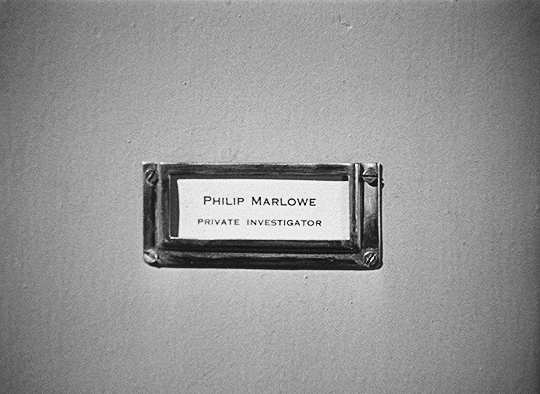



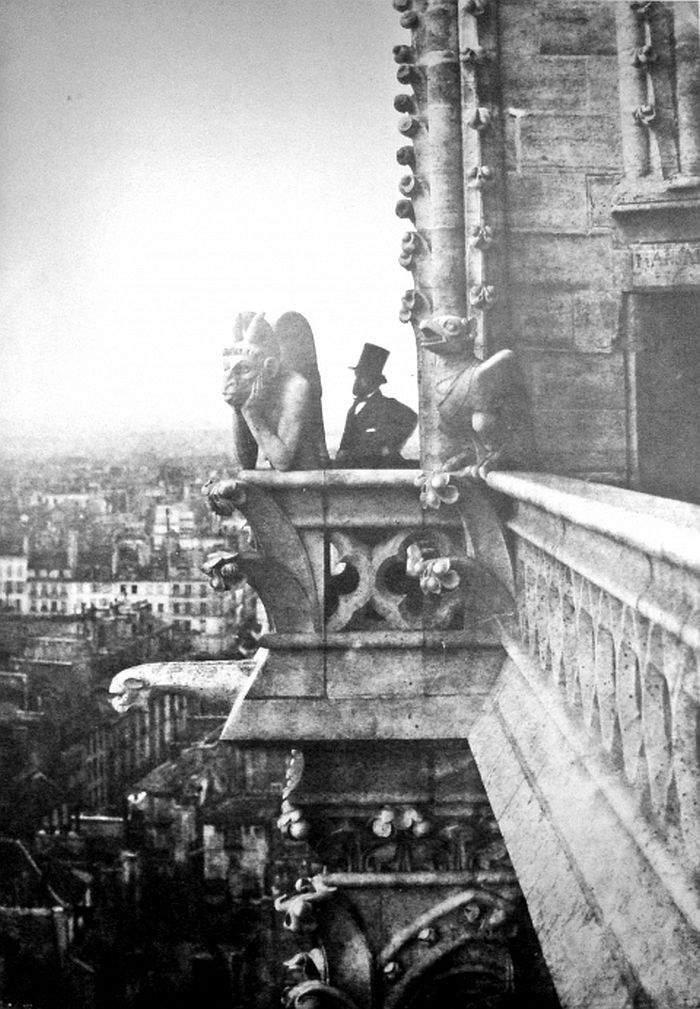
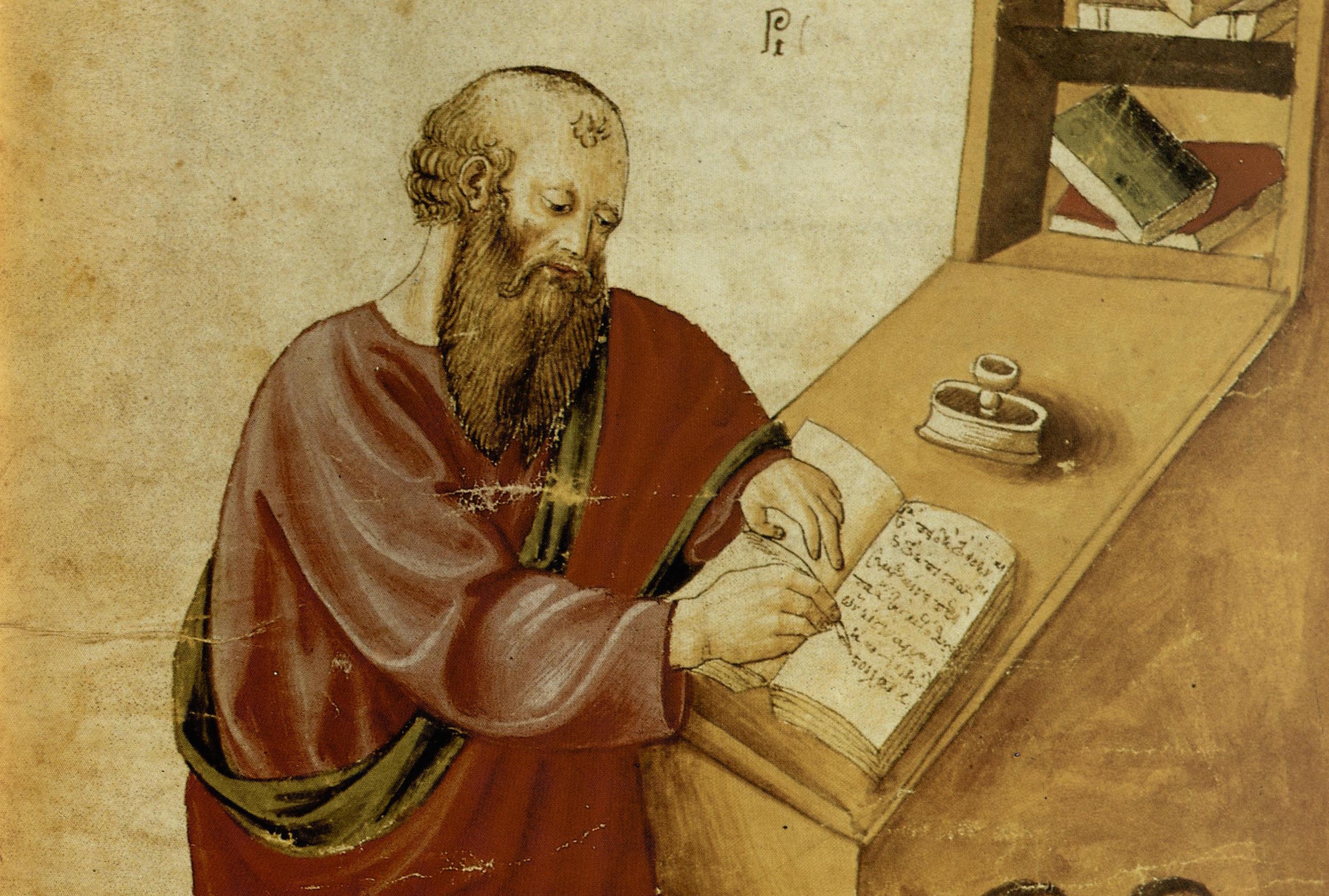




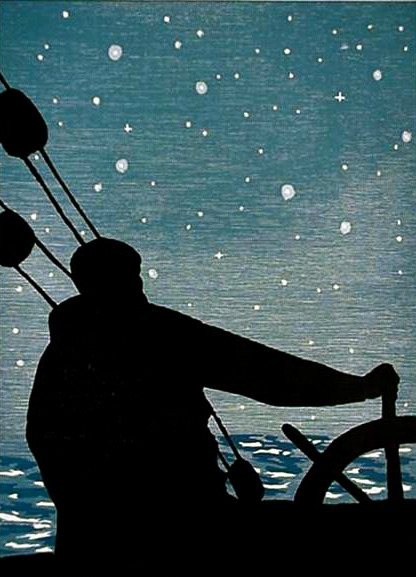
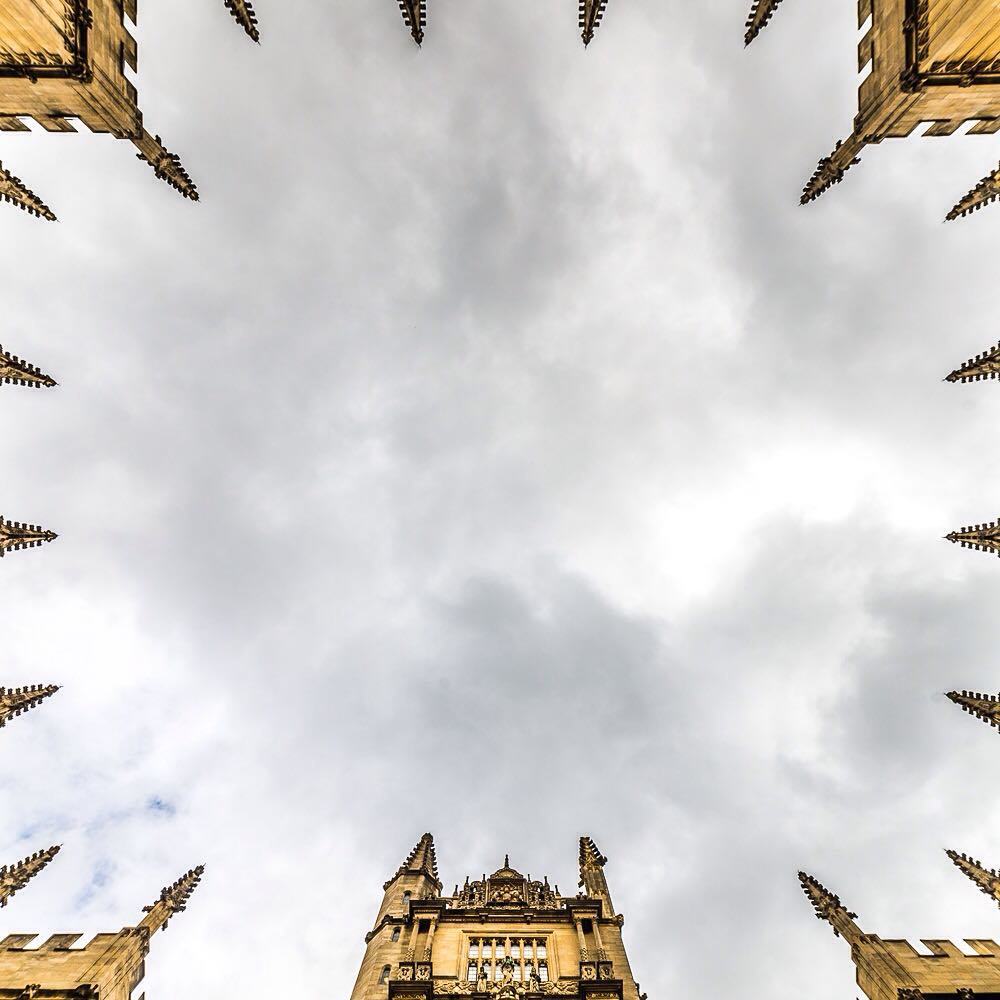










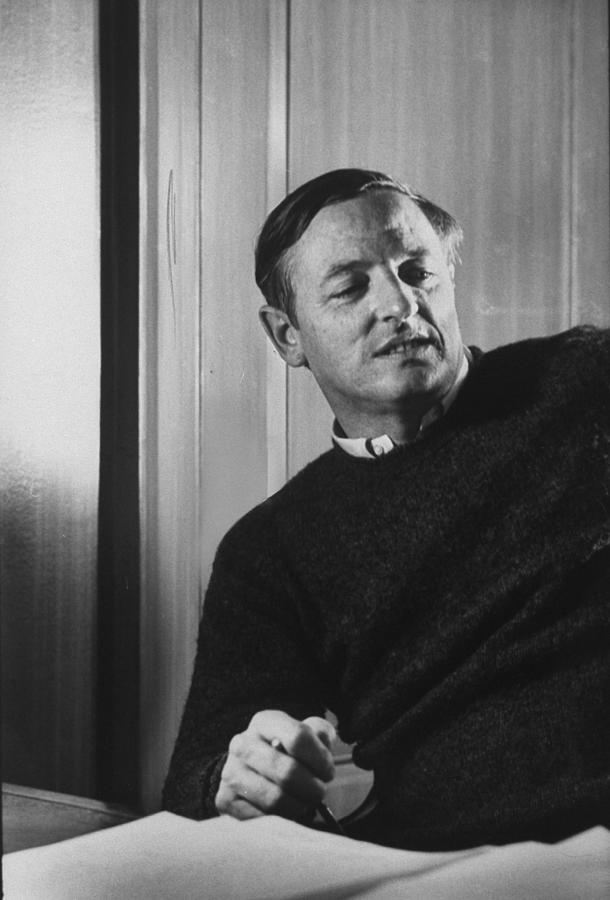


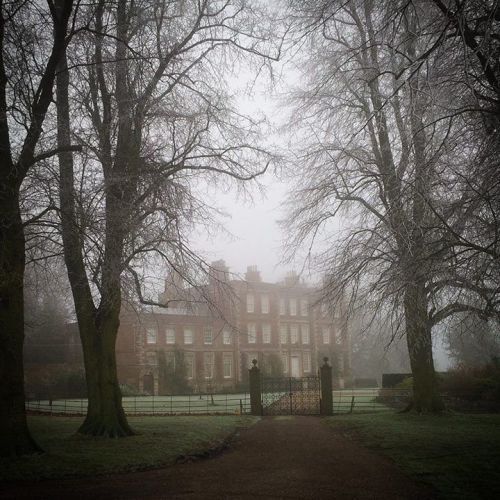
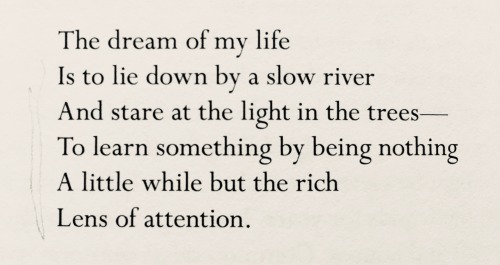







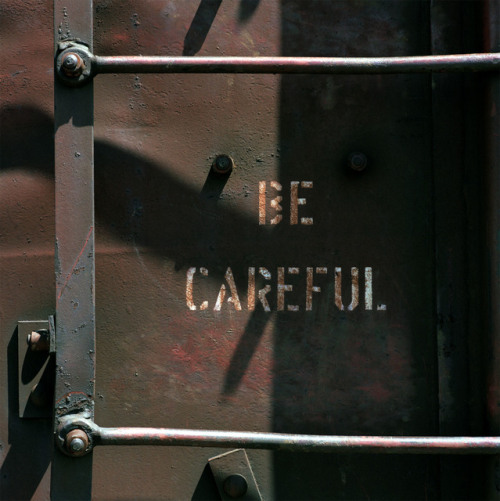
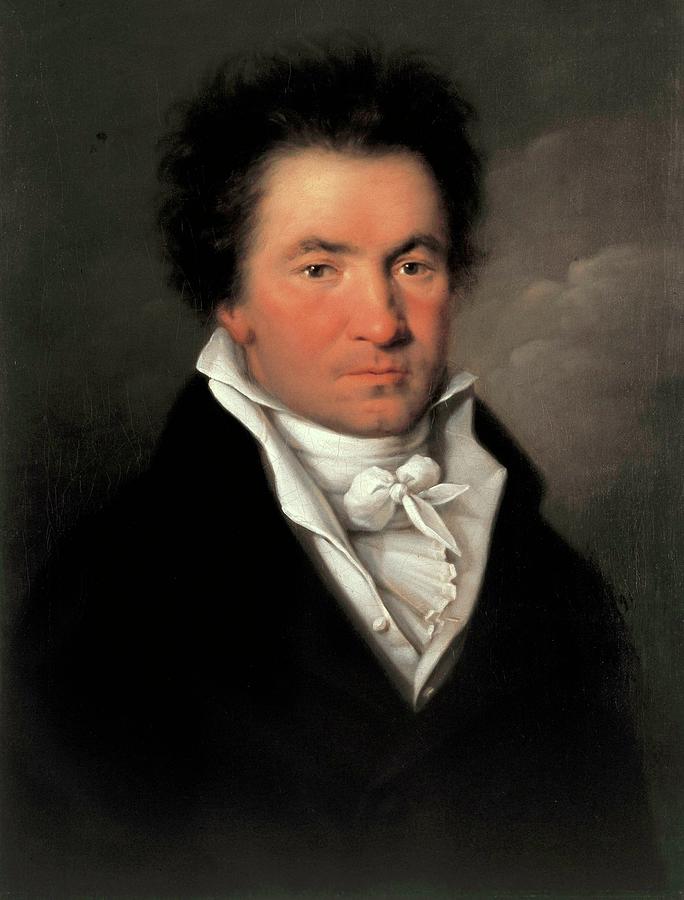
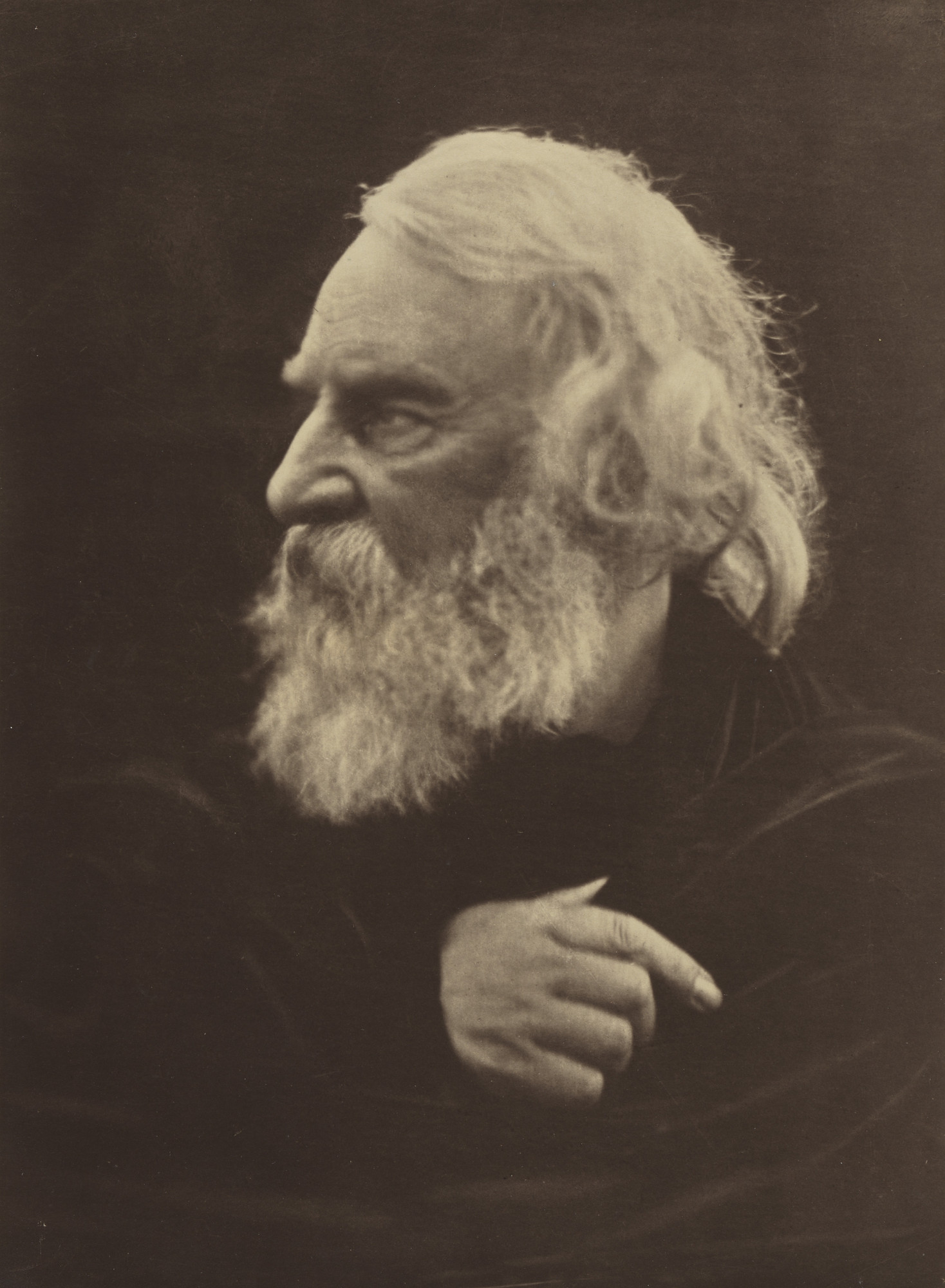


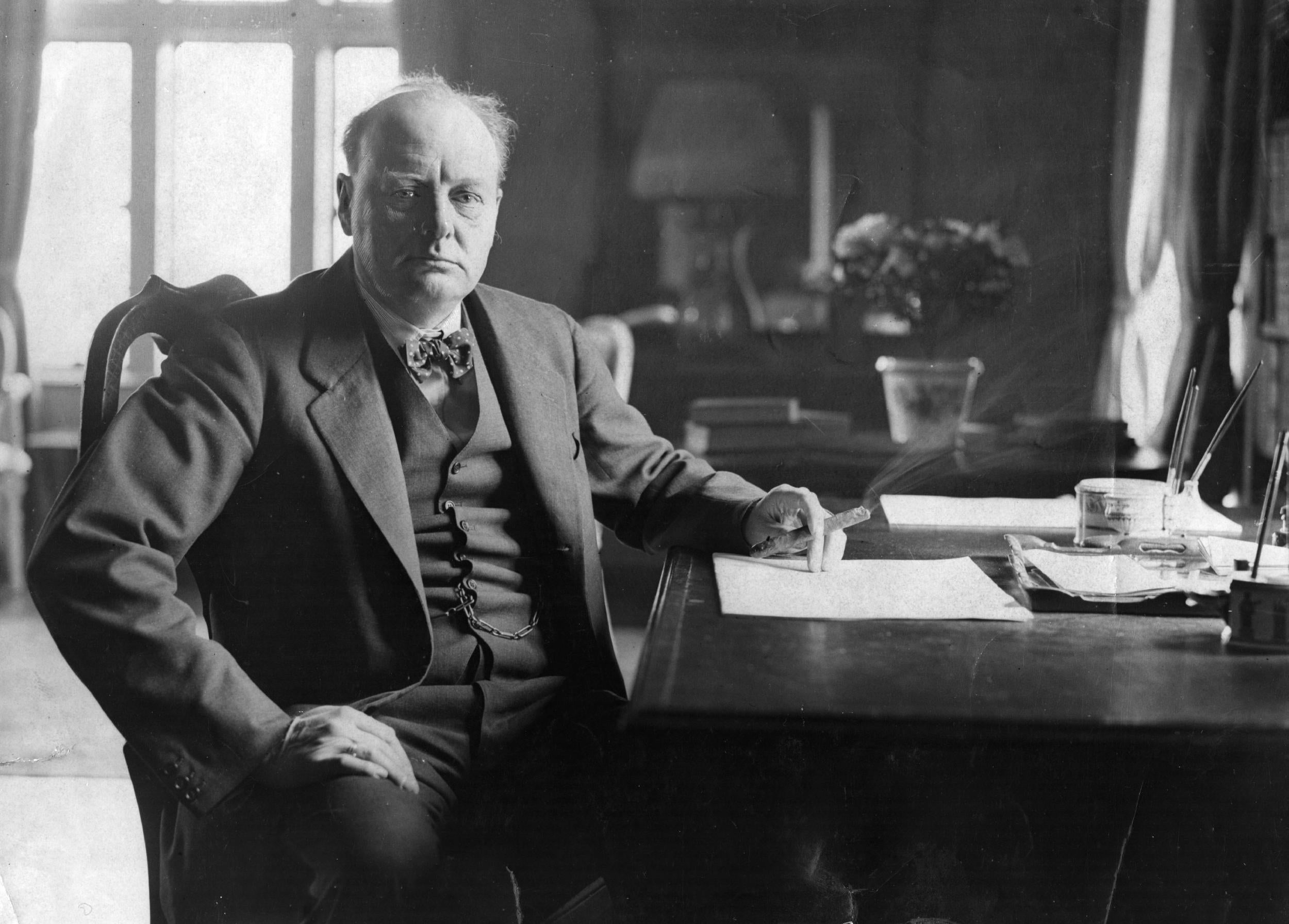

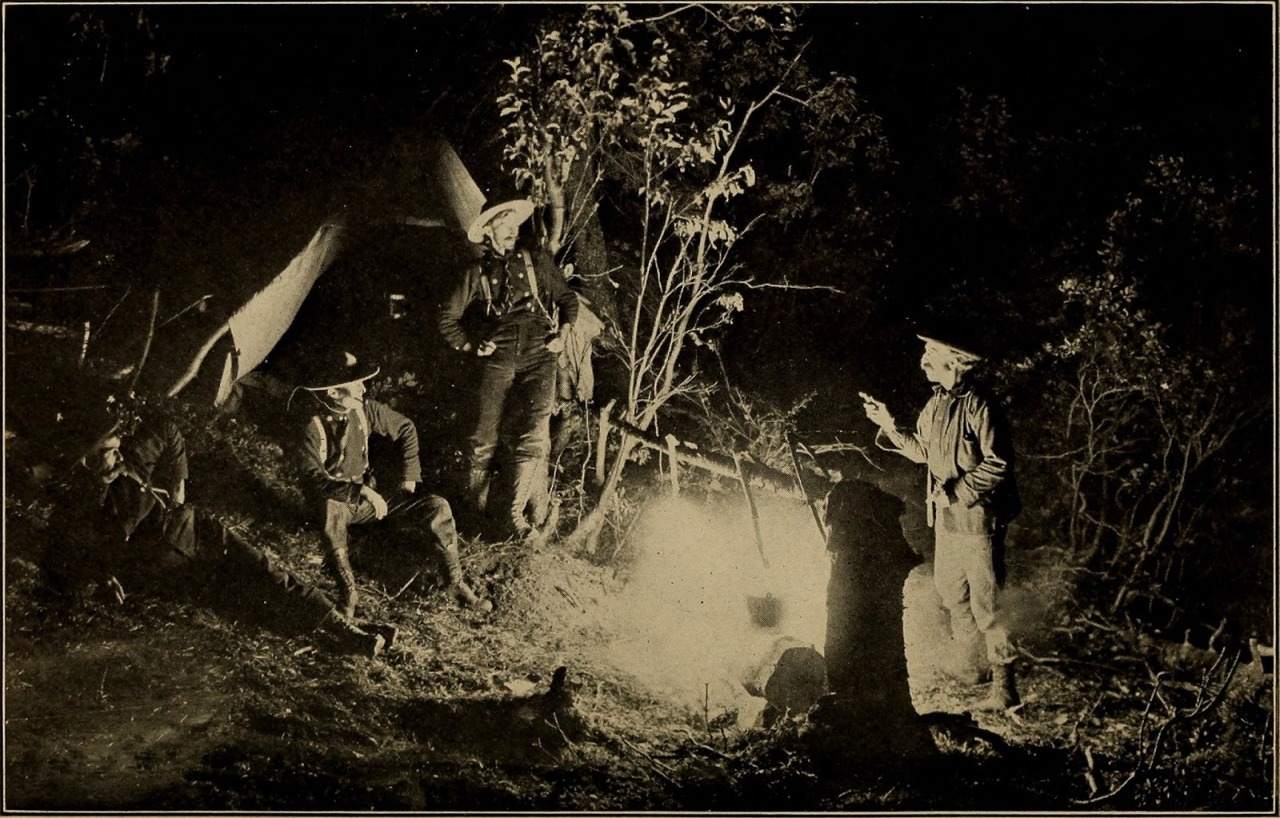


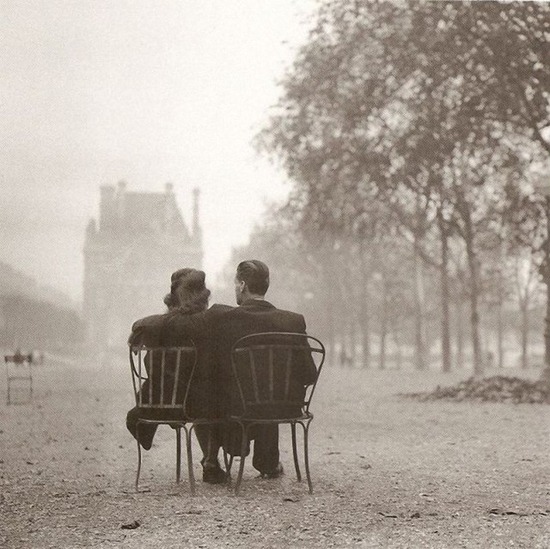





:format(jpeg):mode_rgb():quality(90)/discogs-images/R-28521-1273092377.jpeg.jpg)
